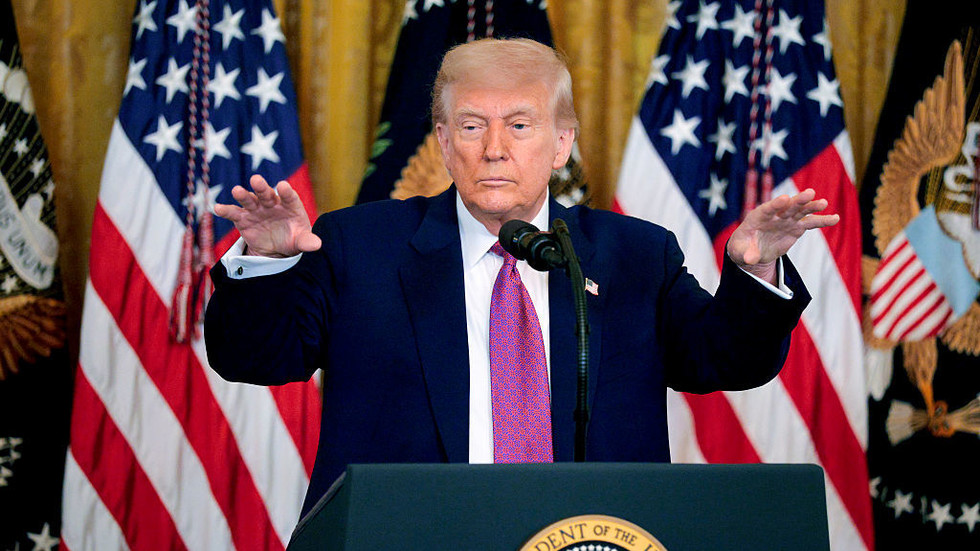The president’s call comes after Iran threatened to block the Strait of Hormuz, a key trade route for crude
US President Donald Trump has warned oil producers against pushing prices higher, amid rising market volatility following American strikes on Iran’s nuclear sites and Tehran’s threat to close the Strait of Hormuz – a key shipping lane for global crude exports.
US forces targeted nuclear facilities in Fordow, Isfahan, and Natanz on Saturday, just a day after Trump said he would decide “within the next two weeks” whether to act. The strikes surprised investors, briefly sending crude prices to five-month highs before easing.
“EVERYONE, KEEP OIL PRICES DOWN. I’M WATCHING! YOU’RE PLAYING RIGHT INTO THE HANDS OF THE ENEMY. DON’T DO IT!” Trump wrote Monday on his Truth Social platform.
In a separate post, he called for an immediate increase in domestic production: “To the Department of Energy: DRILL, BABY, DRILL!!! And I mean NOW!!!”
Crude prices have climbed roughly 10% since Israel’s surprise strike on Iran ten days ago, amid growing fears of a broader regional conflict and potential supply disruptions.
Traders are now closely watching for possible retaliation from Iran, which could target energy infrastructure across the Middle East. Tehran, which controls the Strait of Hormuz – a route for about 20% of the world’s oil – has threatened to shut the waterway in response to the US strikes. Its parliament approved the move on Sunday, though the final decision rests with the country’s national security council.
While Iran has issued similar threats in the past, analysts say fully closing the strait would be difficult, as Tehran also relies on the channel to export oil to China and other key buyers.
US Secretary of State Marco Rubio on Sunday urged China to pressure Iran not to carry out the threat, arguing that, as Iran’s top oil customer, Beijing has significant leverage. The US Energy Information Administration has called the Strait of Hormuz the “world’s most important oil transit chokepoint.”
Analysts warn that any disruption to traffic through the strait or to Iranian oil exports could drive prices higher and weigh on global economic growth. “The main economic risk is a rise in energy prices,” wrote Goldman Sachs chief economist Jan Hatzius in a note seen by CNBC.
Hatzius projected that a prolonged closure could reduce global GDP by more than 0.3 percentage points and push inflation higher. S&P Global also warned that natural gas flows could be “severely impacted.”
As of Monday, Brent crude was trading around $72 a barrel. US benchmark WTI briefly surged 4.6% to $78 before slipping back to around $70. Analysts say Brent could climb as high as $110 a barrel if the strait is blocked.
Read the full article here


